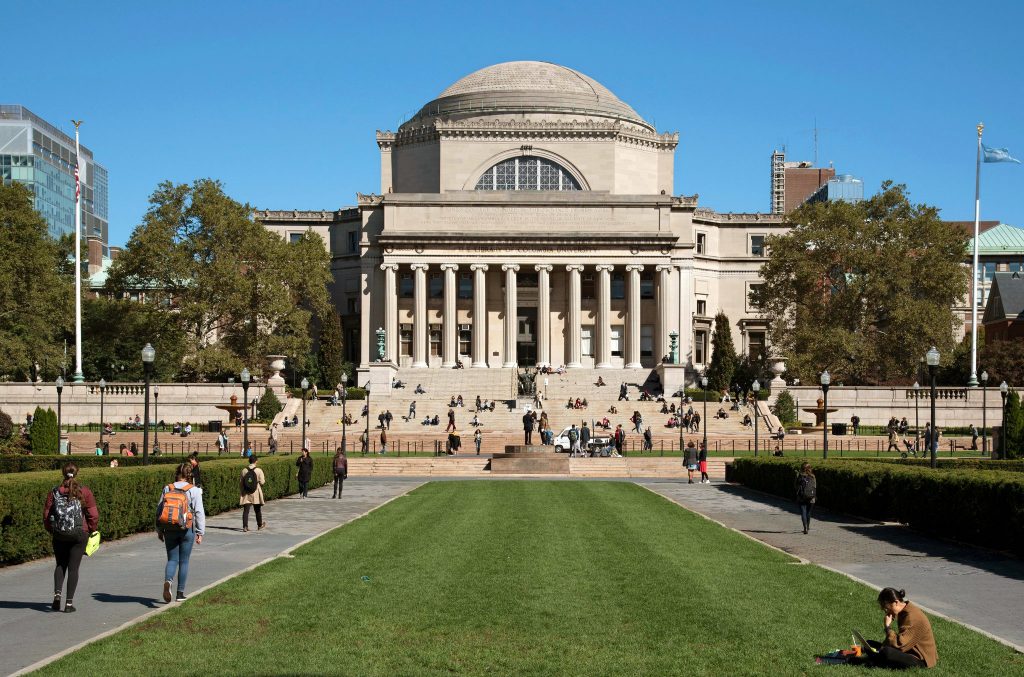
Students are stressed. I read about it all the time in the news, and hear about it all the time from my colleagues and parents of my students. It stinks, but it makes sense. Students today are high achievers, motivated to excel in school and sports, rise to leadership roles in clubs, and serve their communities. So many of them I know really do it all, and in some cases, do it all really well. Unfortunately, this comes at a cost. They sleep little, stress lots, and don’t always put their wellbeing before their achievements. What’s worse, is they often aren’t doing it all for a good reason. Instead of a true intrinsic motivation to explore what interests them, exercise and engage in healthy athletic competition, and do good for the sake of doing good, a lot of students are driven by a desire to reach a specific goal, namely, admission to an uber selective college or university.
One way to ease student stress (at least in many of the students I work with) is to get students to realize that attending an Ivy League school, even a top 20 or 30 school, is not the key to success in life. Leading a successful—and let’s not forget happy life—has nothing to do with where you go to college. The Ivy League and other uber selective institutions have a lot to offer, but they are not the only schools in the game. They own the rights to a powerful brand, but that doesn’t mean there’s some magic taught on these campuses instilling success and happiness in every single one of the students who attend—there is not! My advice to students and parents is to take a deep breath (literally, research says so) and look beyond the Ivies and other uber selective institutions. Create a list with some breadth and depth. Do some exploring and see all the wonderful options that are out there—you may be very pleasantly surprised.
Speaking of deep breaths, another way to ease student stress is to practice some of the techniques espoused by positive psychology. A recent NY Times article highlighted a few stress relieving techniques via Dr. Seligman at UPenn that I want to share. (I know…I just said look beyond the Ivy League and the article I linked above cites research from Stanford…but I will still cite some of the outstanding research that comes out of Penn and other top research institutions that fall into the uber selective category on this blog).
To cultivate the components of well-being, which include engagement, good relationships, accomplishment, and purpose, Dr. Seligman suggests four exercises based on research at the Penn Positive Psychology Center, which he directs, and at other universities. These exercises are not specifically geared toward high school students, but I see no reason why they would not apply. Enjoy!
Identify Signature Strengths
Write down a story about a time when you were at your best. It doesn’t need to be a life-changing event but should have a clear beginning, middle and end. Reread it every day for a week, and each time ask yourself: “What personal strengths did I display when I was at my best?” Did you show a lot of creativity? Good judgment? Were you kind to other people? Loyal? Brave? Passionate? Forgiving? Honest?
Writing down your answers “puts you in touch with what you’re good at,” Dr. Seligman explained. The next step is to contemplate how to use these strengths to your advantage, intentionally organizing and structuring your life around them.
In a study by Dr. Seligman and colleagues published in American Psychologist, participants looked for an opportunity to deploy one of their signature strengths “in a new and different way” every day for one week.
“A week later, a month later, six months later, people had on average lower rates of depression and higher life satisfaction,” Dr. Seligman said. “Possible mechanisms could be more positive emotions. People like you more, relationships go better, life goes better.”
Find the Good
Set aside 10 minutes before you go to bed each night to write down three things that went really well that day. Next to each event answer the question, “Why did this good thing happen?”
Instead of focusing on life’s lows, which can increase the likelihood of depression, the exercise “turns your attention to the good things in life, so it changes what you attend to,” Dr. Seligman said. “Consciousness is like your tongue: It swirls around in the mouth looking for a cavity, and when it finds it, you focus on it. Imagine if your tongue went looking for a beautiful, healthy tooth.” Polish it.
Make a Gratitude Visit
Think of someone who has been especially kind to you but you have not properly thanked. Write a letter describing what he or she did and how it affected your life, and how you often remember the effort. Then arrange a meeting and read the letter aloud, in person.
“It’s common that when people do the gratitude visit both people weep out of joy,” Dr. Seligman said. Why is the experience so powerful? “It puts you in better touch with other people, with your place in the world.”
Respond Constructively
This exercise was inspired by the work of Shelly Gable, a social psychologist at the University of California, Santa Barbara, who has extensively studied marriages and other close relationships. The next time someone you care about shares good news, give what Dr. Gable calls an “active constructive response.”
That is, instead of saying something passive like, “Oh, that’s nice” or being dismissive, express genuine excitement. Prolong the discussion by, say, encouraging them to tell others or suggest a celebratory activity.
*Stay in the know! Subscribe for college admissions news, tips, and advice*














